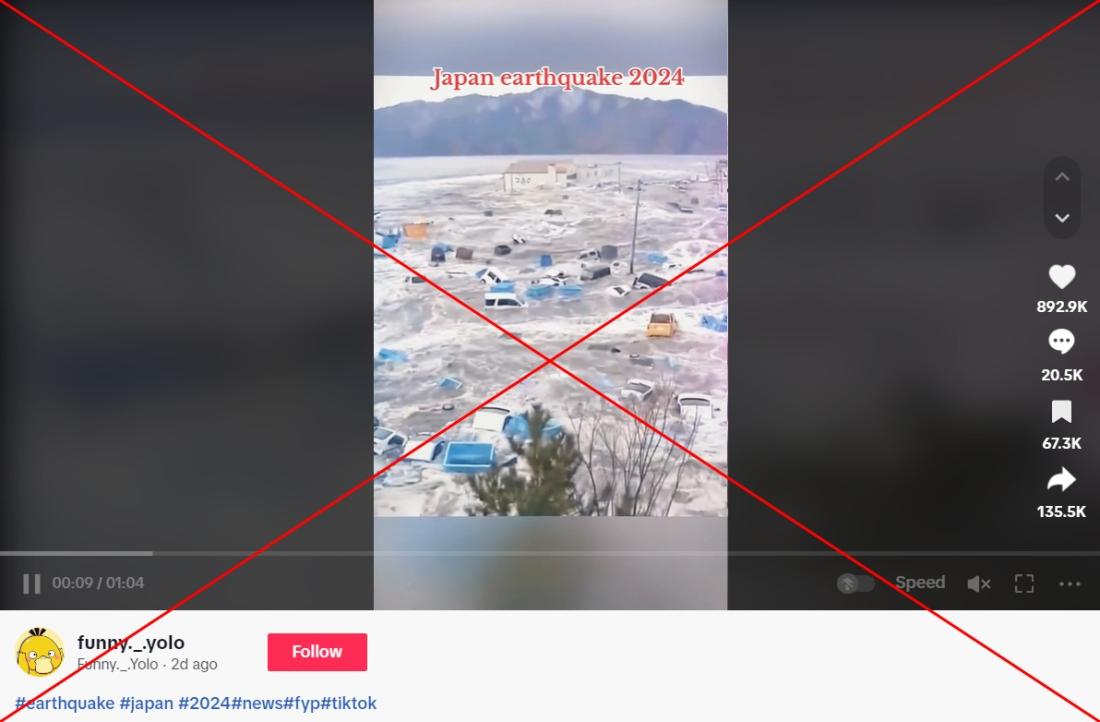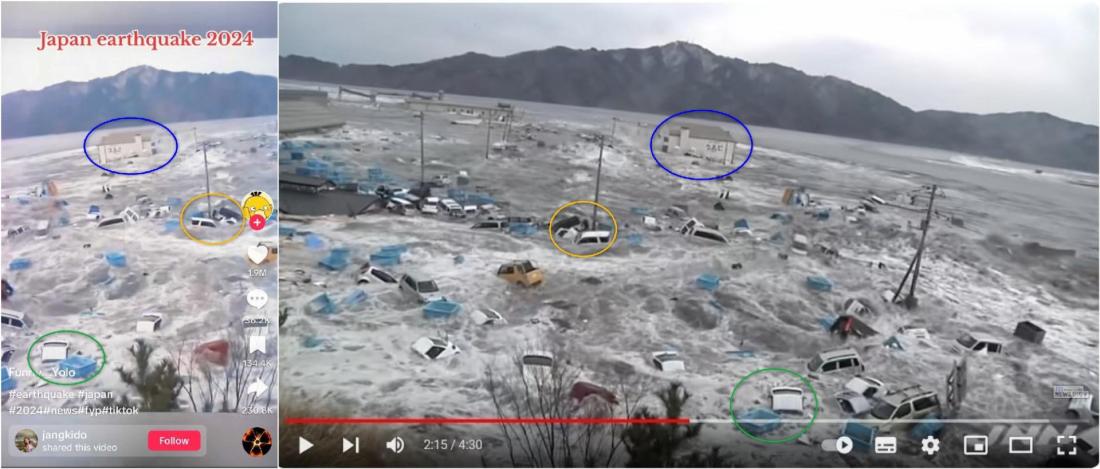
Tsunami video from 2011 falsely linked to Japan quake
- This article is more than two years old.
- Published on January 8, 2024 at 07:43
- Updated on January 9, 2024 at 03:05
- 3 min read
- By Ara Eugenio, AFP Philippines
"Japan earthquake 2024," says text superimposed on a video with more than 80 million views that was posted on TikTok on January 2, 2024.
The video contains five different clips, the first of which shows ships, cars and cargo containers washed away by tsunami waves.
The second, third and fourth clips show a street, cars at a parking lot and signs at a train station shaking during an apparent earthquake, while the fifth video appears to show a neighbourhood that was jolted by a quake.

A 7.5-magnitude earthquake struck Japan's central prefecture of Ishikawa on New Year's Day, triggering tsunami waves more than a metre high, a major fire and extensive damage in neighbourhoods.
Local authorities said on January 8 that the death toll from the quake had jumped to 161, with snowfall hampering relief efforts.
While waves at least 1.2 metres (four feet) high hit the town of Wajima and a series of smaller tsunamis were reported elsewhere, warnings of much larger waves proved unfounded and Japan lifted all warnings on January 2.
The compilation has also been shared alongside a similar claim by social media users across the globe on TikTok, Facebook, YouTube, KuaiShou and Douyin.
But the specific clip showing raging waters can be traced to a massive tsunami that levelled Japan's northeast coast on March 11, 2011, as shown by reverse image and keyword searches.
Old tsunami clip
The video corresponds to footage seen at the 2:10 mark of footage uploaded to YouTube by the Japan News Network (JNN); its caption states it was taken at a port in Miyako City of Japan's Iwate prefecture in March 2011 (archived link).
The JNN footage has been mirrored in the video used by the false posts.
The massive waves came as a result of a 9.0-magnitude undersea quake that struck northeastern Japan (archived link). The tremor triggered a nuclear disaster and ultimately left more than 18,500 people dead or missing.
Below is a screenshot comparison -- with key elements highlighted by AFP -- between the mirrored clip used in the false post (left) and the video uploaded by JNN (right):

The white building in the middle of the video corresponds to Google Street View imagery from a fishing port in the city (archived link).
Genuine videos
AFP could not independently verify the second and third videos but they were widely used in news reports -- including here and here -- depicting the tremor that struck on New Year's Day 2024 (archived links here and here).
Google reverse image searches of keyframes extracted from the fourth and fifth videos found they were originally posted here and here, with both users confirming to AFP they had taken the videos during and after the January 1 quake (archived links here and here).
AFP was able to geolocate the last video using Google Street View imagery (archived link).
AFP has previously fact-checked posts falsely claiming to show clips from the recent earthquake in Japan here, here and here.
The first paragraph of this article was amended to include details of videos in the social media posts taken from reports about the New Year's Day earthquake in Japan.January 9, 2024 The first paragraph of this article was amended to include details of videos in the social media posts taken from reports about the New Year's Day earthquake in Japan.
Copyright © AFP 2017-2026. Any commercial use of this content requires a subscription. Click here to find out more.
Is there content that you would like AFP to fact-check? Get in touch.
Contact us
